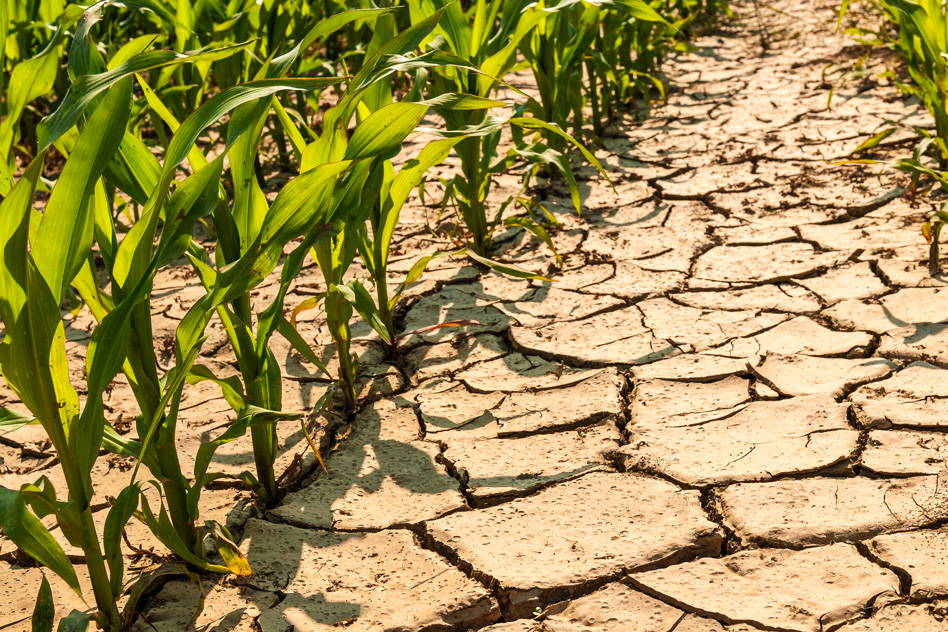The soil crisis: Our soil is dying Kenya, African farmers

By George George Idowu
When Benson Wanjala began farming in his western Kenya village over 25 years ago, his 10-acre farm yielded a bountiful 200 bags of maize. Today, he barely manages to harvest 30 bags. The once fertile soil has degraded into a nearly lifeless expanse that no longer sustains his livelihood.
Wanjala’s story is not unique. Many Kenyan farmers have experienced similar declines in productivity, often attributing this to the acidifying fertilizers promoted across Kenya and other African countries in recent years. Initially, these fertilizers seemed to boost yields, but over time, the benefits waned. In 2008, the Kenyan government introduced a fertilizer subsidy, making chemical fertilizers more accessible to small-scale farmers.
However, the widespread use of these fertilizers has led to unintended consequences. According to Kenya’s agriculture ministry, approximately 63% of the country’s arable land is now acidic. This soil degradation has contributed to declining yields in key crops such as maize and has also affected leading exports like horticulture and tea. The Food and Agriculture Organization reported a 4% decline in maize production in 2022, though the cause was not specified.
Compounding the issue, a scandal involving fake fertilizer in April 2023 further undermined confidence in the government’s subsidy program. Bags of quarry dirt, misleadingly labelled as fertilizer, were distributed to farmers. President William Ruto promised compensation for the approximately 7,000 affected farmers.
Africa, despite having 65% of the world’s remaining uncultivated arable land, spends about $60 billion annually on food imports, a figure projected to rise to $110 billion by 2025. This paradox underscores the urgency of addressing soil health and agricultural productivity on the continent.
In May, Kenya hosted an Africa-wide soil health summit to tackle these issues. The summit highlighted the need for sustainable agricultural practices to replenish degraded soils. Stephen Muchiri, executive director of the Eastern Africa Farmers Federation, emphasized the importance of returning to traditional farming methods. He advocated for crop rotation, minimal soil disturbance, and the use of organic compost from livestock.
“Inorganic fertilizers were never meant to be the foundation of crop production,” Muchiri stated. He warned that commercially inclined farming has left soils poor, acidic, and devoid of vital biomass. To restore fertility, Muchiri recommended a gradual transition back to organic farming practices.
Experts agree that soil acidity is a major factor in land degradation, reducing the availability of essential nutrients and making soil more susceptible to erosion. Bridget Mugambe, program coordinator for the Alliance for Food Sovereignty in Africa, called for the phasing out of chemical fertilizers. She argued that a holistic approach to soil health is necessary, moving beyond quick fixes provided by chemical fertilizers.
The African Union, which in 2006 encouraged the use of chemical fertilizers, has now adopted a 10-year plan to increase investment in both organic and chemical fertilizer production, aiming to triple their use for higher yield During the summit, AU Commissioner for Agriculture Josefa Leonel Correia Sacko highlighted the continent’s annual loss of over $4 billion worth of soil nutrients.
Kenya relies heavily on imported fertilizer, mainly from the European Union, Saudi Arabia, and Russia. John Macharia, Kenya manager for the Alliance for a Green Revolution in Africa, advised farmers not to be disheartened by the recent fertilizer scandal. He stressed the importance of using the right fertilizers, whether chemical or organic, based on soil analysis.
The soil quality crisis extends beyond Kenya. In Zimbabwe, once the region’s breadbasket, about 70% of soils are acidic. Misuse of chemical fertilizers has depleted organic matter, further degrading soil health. Wonder Ngezimana, a crop science professor at Marondera University of Agricultural Sciences and Technology, emphasized the traditional knowledge of using organic manure to enhance soil fertility.
However, the decline in livestock due to recent droughts has left many Zimbabwean farmers without enough organic matter to maintain soil health. AGRA recommends soil acidity testing and the application of lime to counteract high acidity, but these solutions are often costly and inaccessible for many farmers.
For Wanjala, the challenges are overwhelming. With limited resources, he struggles to afford manure, seeds, and other necessary inputs. “I can not afford more expenses,” he lamented.
As Africa grapples with food security concerns, addressing soil health is paramount. Sustainable farming practices and a balanced use of fertilizers, guided by soil analysis, could pave the way for a more resilient agricultural future on the continent.
